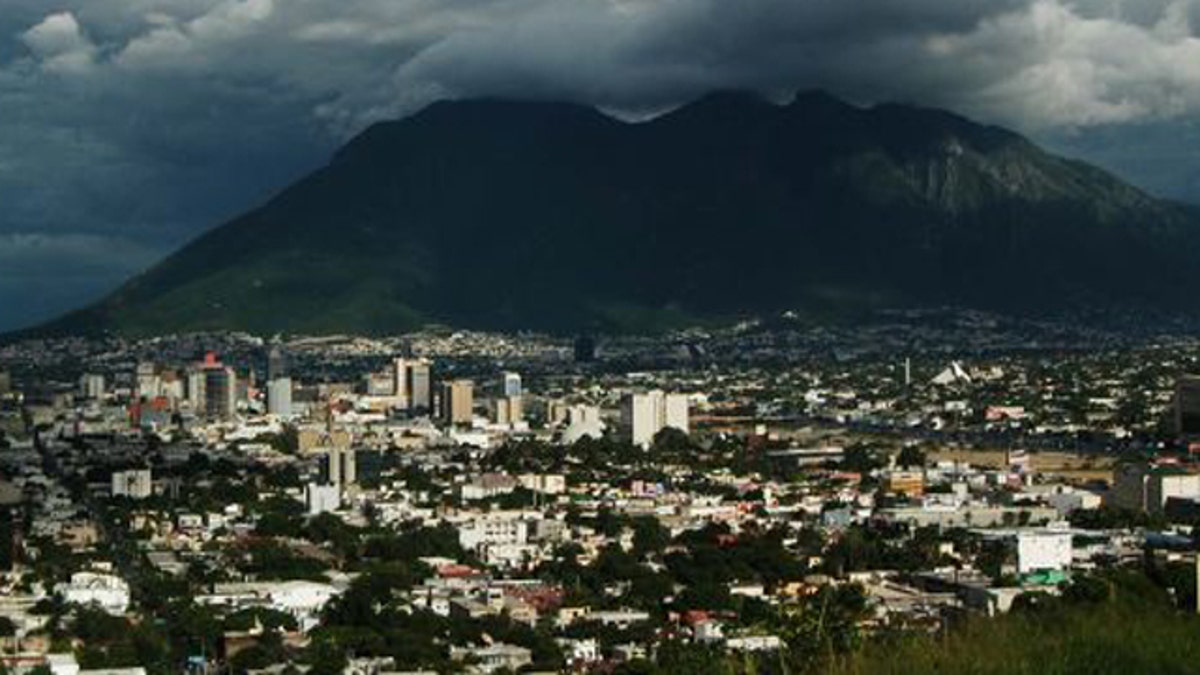
Monterrey, once Mexico's shining economic star, has seen its reputation diminish as extortion, violence and other incidents involving drug cartels have increased. (Flickr/gen gibler)
Fifteen years ago, Monterrey was Mexico’s boomtown.
As the country’s economy started booming, companies flocked there to expand. And thanks to the prestigious Tecnológico de Monterrey, the city had graduates to fill new corporate jobs. Monterrey was considered the country’s business capital – Mexico’s Säo Paolo – and residents considered their metropolis superior, especially when compared to old-fashioned and unsafe Mexico City.
But today, Monterrey’s gloating has stopped.
With the drug war ravaging northern Mexico, the city’s reputation is slipping as Mexico City’s prospects rise. With violence still surging – bodies have been dumped in the middle of the streets, beheadings are almost common – could Monterrey permanently lose its hard-won prominence?
That question today haunts regios, the name for Monterrey’s locals.
“What worries me,” says Dr. Jorge Garza Rodríguez, an economics professor at the University of Monterrey “…is young professionals leaving Monterrey because of this crime problem.”
Garza Rodríguez says that he suspects young college and masters graduates are starting their careers in other cities, like Mexico City or Merida.
“Instead of planning to develop their careers here, they move,” he says.
The capital’s Secretary of Economic Development, Laura Velázquez Alzúa, reported earlier this fall that 1,600 businesses from northern Mexico had migrated to Mexico City, due to security concerns, in the last two years.
The Federal District also claimed the top spot in a survey on states’ economic competitiveness, released by the Tecnológico de Monterrey last year. Nuevo Leon, Monterrey’s home state, came in second following behind the capital in areas such as government efficiency, infrastructure, business efficiency and global competitiveness.
Another Tecnológico de Monterrey study lists the Federal District as the place with the most developed “knowledge economy.” The publication examined aspects such as investment in science and technology; where science and technology workers live; and where patents are solicited.
While Garza Rodríguez knows that many people have already left Monterrey, he believes that more companies are contemplating moving, watching to see if the violence worsens or subsides.
“If things get as bad as they used to be in Colombia, I will get worried about companies not only not being established here, but leaving,” he says.
Of course, people flee in various directions. Aside from migration in Mexico, the United States is also attracting Monterrey residents. San Antonio and Houston have witnessed new affluent Mexican communities crop up since the drug war began. Mexicans are able to get visas with a business investment of $500,000 to $1 million, depending on the area, in the United States.
So while Mexico City is getting stronger – thanks in part to northern businesses’ migration – its business rival is losing economic resources to various places.
Though not immune to drug crime, the capital has avoided Monterrey’s main problems: various high-profile killings; narcobloqueos, traffic blockades orchestrated by cartel members; and anything comparable to the city’s Casino Royale fire, which killed more than 50 people. The Zetas cartel allegedly started the conflagration.
One of the principal challenges facing northern companies today is extortion. Thugs reportedly attacked the Casino Royale because its owner refused to make a payoff.
Since late summer, various decapitations – allegedly by the criminal group, La Mano con Ojos – have also been reported in the Mexico City area. Drug dealing is common in the region, as is money laundering, according to authorities.
“It’s true that today the Federal District (Mexico City) is one of the most secure areas in the country,” said Fernando Oscar García Chávez, president of business organization COPARMEX’s Mexico City group, during a recent speech. Nevertheless, he added, “one shouldn’t let down his guard, nor think that the crimes and grave situations being confronted in other states couldn’t arrive, one day, at our door.”
Magazine M Semanal recently analyzed Mexico City’s mostly quiet cartel presence, writing that groups’ violence and financial activities were hard to analyze simply because of the region’s immensity. Moreover, large numbers of federal troops, federal police and private security forces fortify the capital, perhaps dissuading criminals from more public violence.
The economic uptick in Mexico City is obvious, says Jack Fraind, president of Mexico City-based Express Relocation, which helps people resettle in various cities around the country.
In the last 10 years, he’s seen a significant increase in the number of people moving to the capital, where many insurance and food companies have recently opened offices. He still sees clients arriving in Monterrey and other places up north, but they’re much more concerned about security and finding safe places to live.
Offered a job in Toluca or Ciudad Juarez, it seems likely a client would opt for Toluca, says Fraind.
“D.F. has heavily increased the volume of not just foreigners, but locals that decided to establish themselves here,” he says.
Ruth Samuelson is a freelance journalist based in Mexico City.
Follow us on twitter.com/foxnewslatino
Like us at facebook.com/foxnewslatino








































